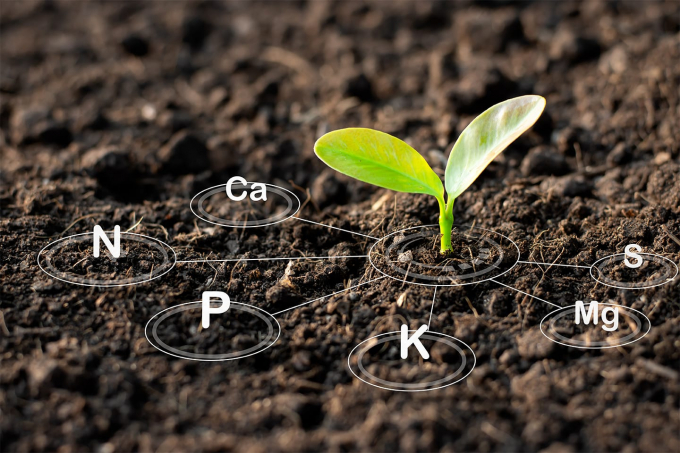November 28, 2025 | 03:46 GMT +7
November 28, 2025 | 03:46 GMT +7
Hotline: 0913.378.918
November 28, 2025 | 03:46 GMT +7
Hotline: 0913.378.918

Sustainability, soil health, crop rotation and good yields. Photo: Dutch Agriculture
Farmers who use practices that improve soil health also save input costs and are more profitable.
That’s the bottom line from a study of 100 farmers in nine top corn and soybean producing states that researchers from the nonprofit Soil Health Institute (SHI) conducted, with support from Cargill, Inc.
The study, “Economics of Soil Health on 100 Farms,” sought to discover whether the agronomic benefits of better soil health had favorable economic benefits, says Wayne Honeycutt, SHI president and CEO.
Positive results resulted for nearly all farms studied. Net income per acre improved by an average of $51.60 per acre for corn and $44.80 per acre for soybeans. The study excludes any subsidies, such as conservation cost share payments for cover crops.
The farms are large commercial operations in states that grow 71% of the nation’s corn and 67% of its soybeans. Those states include all of the Corn Belt, from Nebraska east through Ohio as well as South Dakota, Minnesota, Michigan, and Tennessee. The average size of the farms was almost 2,000 acres.
The study included farms that had used soil health building practices for at least five years, Honeycutt said, but their experience was much greater. The farms had been using no-till for 19 years and cover crops for about a decade.
The SHI has already released results from its study for each state, but Wednesday was the first time for public discussion of data from all nine. Honeycutt spoke on the first day of SHI’s two-day annual meeting.
The 100 farms in the study use no-till on 85% of their acres, compared with 37% of all U.S. farm acres. They’ve planted cover crops on 53% of their acres, far ahead of the 5% of all farm acres in cover crops.
PERKS EXCEED COSTS
Benefits offset increased costs for both corn and soybeans. On corn, added costs of improving soil health tallied an average $48 per acre.
One of the biggest increases was $12.62 an acre for seed, due to cover crops. That may seem low, Honeycutt said, but that’s because about half of the farms’ acres were protected by cover crops.
Corn benefits added up to $99.60 per acre, with one of the biggest savings coming from a $22.36-per-acre reduction in fertilizer costs. Reduced labor and fuel costs from using no-till also increased benefits. Over time, corn yields increased by about $7.73 per acre, adding more to the benefit side of the equation.
The way that researchers measured yield improvements varied by farm, he said. Some kept plots that didn’t use new soil building practices, while others compared yields to county averages.
The economic comparison was made using partial budgets. Inputs or practices that weren’t changed were left out of the calculations. For example, if the farm kept using the same herbicide, that wasn’t included.
Not all farms studied improved their income by using what SHI calls Soil Health Management Systems (SHMS). But most did; with net income increasing for 85% of farmers growing corn and 88% of those growing soybeans. Nearly all — 97% – reported increased crop resilience to extreme weather, such as drought.
Honeycutt said one of the next steps for the institute’s economic studies is to develop a better understanding of the economics of making the transition to soil health management systems.
(SF)

(VAN) A new study reveals how the simultaneous effects of ocean acidification, salinity and loss of oxygen are making the world more fragile.

(VAN) Hopes are growing that the creation of the first 3D turkey gut model could be a turning point in the battle against the virulent blackhead disease.

(VAN) Tyson, America’s biggest meat supplier, plans to shutter one of its largest beef processing plants as the industry continues to struggle with low cattle supplies and political pressure from Washington.

(VAN) New FAO study shows how digital solutions are empowering farmers and fishers to prevent losses and build resilient agrifood systems.

(VAN) Brazil's COP30 presidency pushed through a compromise climate deal on Saturday that would boost finance for poor nations coping with global warming but that omitted any mention of the fossil fuels driving it.

(VAN) Poultry farmers in the UK have been warned that they could face one of the worst winters yet for bird flu.

(VAN) Prices of main-crop paddy have risen sharply, with jasmine rice hitting 16,100 baht per tonne — the highest level in years.